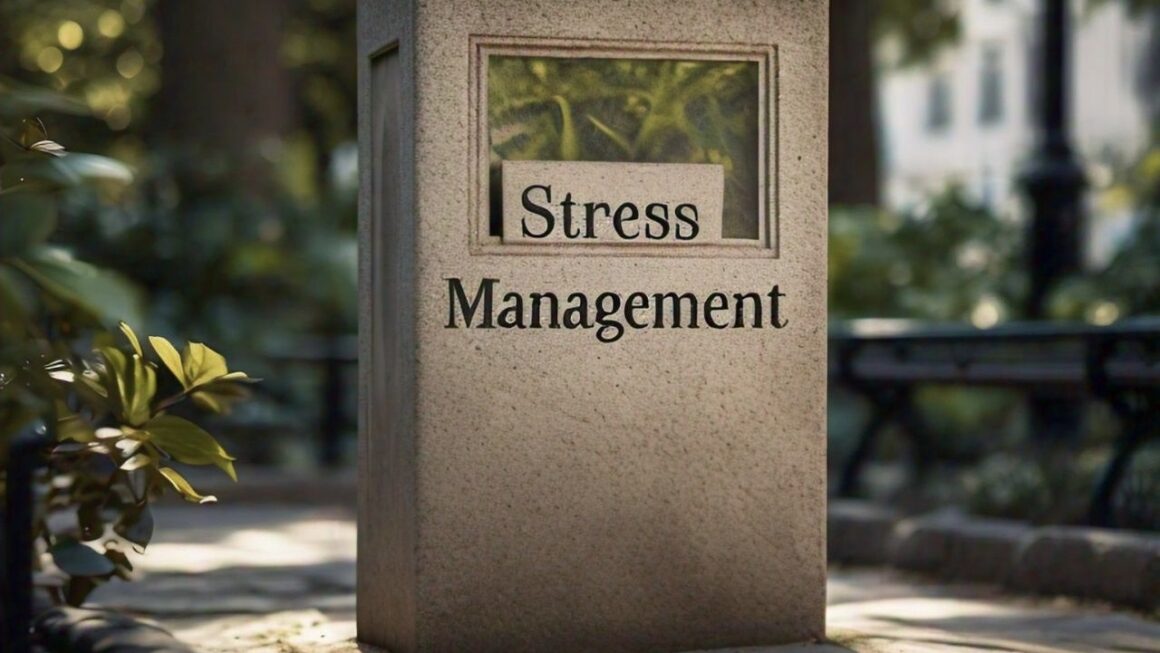In our fast-paced world, stress has become an almost inevitable part of daily life. From work deadlines to personal responsibilities, the demands on our time and energy can often feel overwhelming. However, stress management is crucial for maintaining both mental and physical health. Here, we explore a range of techniques to help you cope with daily stressors and achieve a more balanced, serene life.
Practice Mindfulness for Stress Management
Mindfulness involves focusing on the present moment without judgment. This practice can significantly reduce stress by helping you become more aware of your thoughts and feelings, and accepting them rather than fighting them. Start with simple mindfulness exercises such as deep breathing, mindful walking, or guided meditation. So, apps like Headspace and Calm offer excellent resources for beginners.
Stay Physically Active for Stress Management
Regular physical activity is one of the most effective ways to combat stress. Exercise boosts the production of endorphins, the body’s natural mood lifters. Whether it’s a brisk walk, a yoga session, or a high-intensity workout, find an activity you enjoy and make it a regular part of your routine. Even short bursts of activity can make a significant difference.
Develop a Healthy Diet for Stress Management
What you eat can influence how you feel. A diet rich in fruits, vegetables, whole grains, and lean proteins can enhance your overall sense of wellbeing and help combat stress. Avoid excessive caffeine and sugar, which can lead to crashes and increased anxiety. Instead, focus on foods that provide steady energy and support brain health, like nuts, seeds, and leafy greens.
Get Adequate Sleep for Stress Management
Sleep is essential for stress management. Lack of sleep can exacerbate stress and make it more difficult to cope with daily challenges. Aim for 7-9 hours of quality sleep per night. Create a calming bedtime routine, keep your bedroom cool and dark, and avoid screens before bed to improve your sleep hygiene.
Establish Boundaries
Learning to say no and setting boundaries can help prevent burnout. It’s important to recognize your limits and communicate them clearly to others. Whether it’s in your personal or professional life, setting boundaries allows you to manage your time and energy more effectively, reducing unnecessary stress.
Foster Social Connections
Strong social connections can provide a buffer against stress. Spending time with friends and family, talking about your feelings, and seeking support when needed can make a big difference. If you’re feeling isolated, consider joining a club, volunteering, or attending social events to meet new people and build supportive relationships. Because it help in improving social anxiety.
Practice Relaxation Techniques
Incorporate relaxation techniques into your daily routine to help manage stress. Techniques such as deep breathing, progressive muscle relaxation, and visualization can help calm your mind and body. Hence, regular practice can enhance your ability to relax and cope with stress in challenging situations.
Engage in Hobbies
Pursuing hobbies and activities you enjoy can be a great way to relieve stress. Whether it’s painting, gardening, reading, or playing a musical instrument, engaging in activities that bring you joy can provide a much-needed break from daily stressors and improve your overall mood.
Stay Organized
A cluttered environment can contribute to feelings of stress and overwhelm. Take time to organize your space and create a calm, orderly environment. Afterwards, Use planners or digital tools to keep track of tasks and deadlines, which can help you stay on top of your responsibilities and reduce stress.
Seek Professional Help
If stress becomes overwhelming and starts to interfere with your daily life, don’t hesitate to seek professional help. A therapist or counselor can provide you with strategies and support to manage stress effectively. For this reason, therapy can be a valuable resource for learning to cope with stress in healthy ways.
Conclusion
Managing daily stressors is an ongoing process that requires conscious effort and practice. By incorporating these techniques into your life, you can develop a more resilient and balanced approach to stress. In other words, it’s about finding what works best for you and making small, consistent changes. With time and practice, you can achieve a greater sense of calm and wellbeing in your daily life. For more information visit article of WHO.
